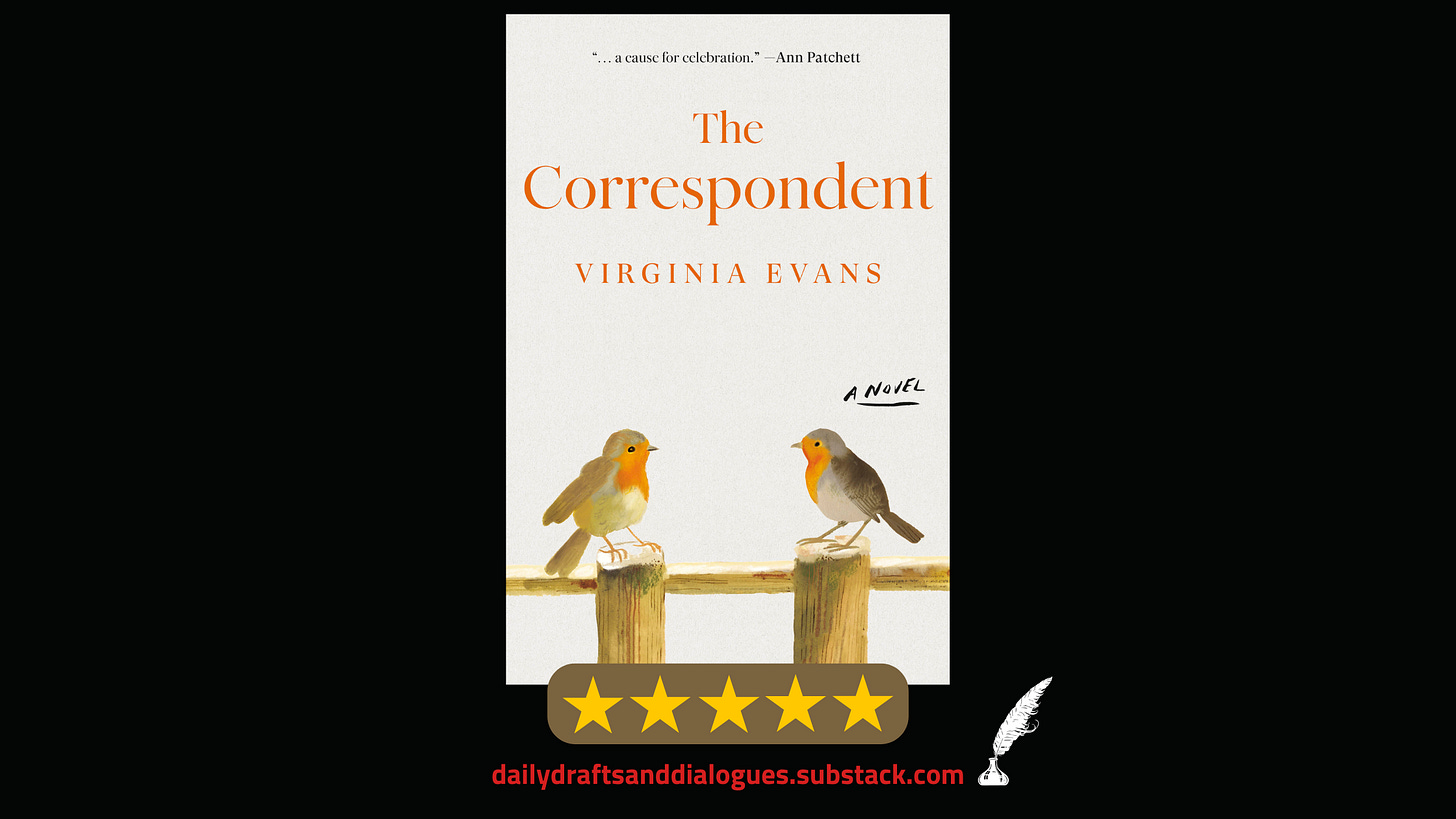Book Review: The Correspondent
Here’s my review of The Correspondent by Virginia Evans. Don’t forget to leave a comment if you’ve read it too, or if you plan to read it. Then see today’s writing prompt at the bottom of this post.
The Correspondent by Virginia Evans is one of the best epistolary novels I have ever read. And its audio version is just as good if not better than its print version due to its diverse cast of characters. Readers who enjoy character-driven novels with a bit of mystery lurking in the background will want to pick this one up, along with a pack of tissues.
…



